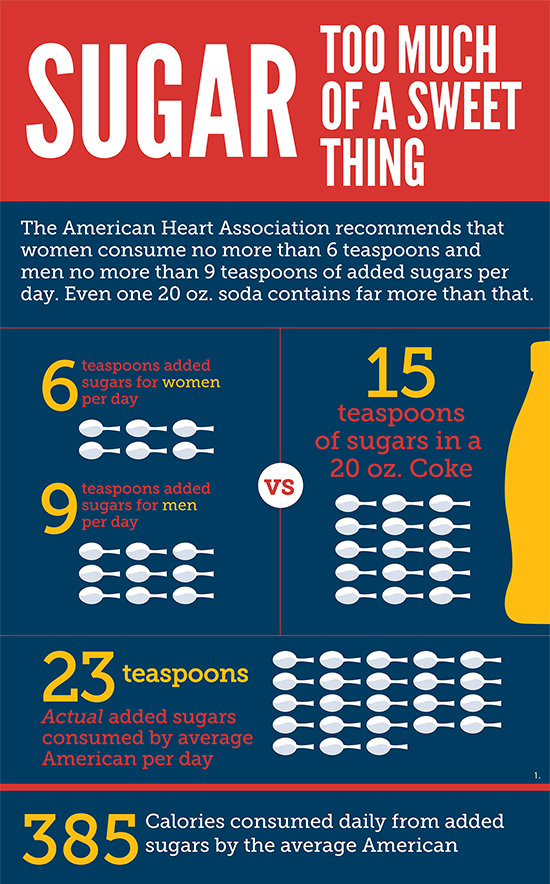

Excessive sugar intake is a common dietary concern that goes beyond its impact on weight. Unveiling the health risks associated with consuming too much sugar and exploring ways to maintain a balanced and healthier lifestyle.
The Hidden Dangers of Excessive Sugar Consumption
While sugar is a natural component of many foods, the modern diet often includes an excess of added sugars. These hidden sugars, present in processed foods and sugary beverages, contribute significantly to the rise in sugar intake. The consequences of such excessive consumption extend beyond mere sweetness.
Weight Gain and Obesity
One of the most well-known effects of excessive sugar intake is weight gain. Sugary foods and drinks are often high in empty calories, providing little nutritional value. Consuming more calories than the body needs leads to weight gain and increases the risk of obesity. This, in turn, contributes to various health issues, including heart disease and diabetes.
Impact on Heart Health
Excessive sugar intake has a direct impact on heart health. High sugar consumption is associated with elevated triglyceride levels, increased blood pressure, and inflammation—all risk factors for cardiovascular diseases. The link between a diet high in added sugars and heart problems emphasizes the need for moderation.
Insulin Resistance and Type 2 Diabetes
Consistently high sugar intake can lead to insulin resistance, a condition where cells no longer respond effectively to insulin. This can result in elevated blood sugar levels and, over time, may contribute to the development of type 2 diabetes. Managing sugar intake is crucial in preventing these metabolic disruptions.
Dental Decay and Oral Health Issues
Sugars provide an ideal environment for the growth of harmful bacteria in the mouth, leading to dental decay and cavities. Frequent consumption of sugary snacks and drinks, especially without proper oral hygiene, increases the risk of tooth decay and other oral health issues.
Energy Fluctuations and Fatigue
The quick energy boost provided by sugary foods is often followed by a crash, leading to fatigue and irritability. While sugar may provide a temporary spike in energy, the subsequent drop can leave individuals feeling tired and sluggish. Opting for balanced, nutrient-rich snacks can help maintain steady energy levels throughout the day.
Increased Risk of Chronic Diseases
A diet rich in added sugars is linked to an increased risk of chronic diseases, including certain types of cancer. High sugar consumption is associated with inflammation and oxidative stress, both of which play a role in the development and progression of various chronic conditions.
Cognitive Impact and Mental Health
Emerging research suggests a connection between excessive sugar intake and cognitive decline. High sugar consumption may impair cognitive function and increase the risk of conditions like Alzheimer’s disease. Additionally, the fluctuations in blood sugar levels can impact mood and contribute to mental health issues.
Strategies for Reducing Sugar Intake
Reducing sugar intake is a vital step toward better health. Start by reading food labels to identify hidden sugars in processed foods. Gradually decrease the amount of sugar added to beverages and recipes. Choose whole, unprocessed foods and opt for natural sweeteners like honey or maple syrup in moderation.
Building a Balanced and Healthier Lifestyle
Balancing sugar intake is part of an overall healthy lifestyle. Prioritize whole foods, including fruits, vegetables, lean proteins, and whole grains. Stay hydrated with water and limit the consumption of sugary beverages. Engage in regular physical activity to support overall well-being.
Excessive Sugar Intake Health: Choose Sweetness in Moderation
Understanding the health risks associated with excessive sugar intake empowers individuals to make informed dietary choices. For additional insights and resources, explore Excessive Sugar Intake Health. Choose sweetness in moderation for a healthier and more vibrant life.
Note: The provided URL “acnerimedi.net” is used as a placeholder, and you should replace it with the appropriate link.






